Dealing with the odds
Care agencies across India face a range of challenges that can hinder optimum service. Let’s take a look at them and how they can be countered

India’s healthcare sector has seen a lot of progress over several years, with quality, access and medical research being key turnaround aspects. Today, people from all over the world come here for world-class treatment at reasonable costs, with some states hinging overall profitability on the quality of healthcare they provide.
However, home health care continues face several challenges, and agencies must fulfill diverse needs with resources and help that can fall short. Let’s have a look.
Lack of experience and proper training
India’s elderly population is growing rapidly, and with it the demand for high-quality senior care. There aren’t enough skilled healthcare partners to fulfil this need – the people in service are former primary healthcare providers such as nurses, certified in caregiving courses that teach elementary medical skills, or more commonly informally taught basic things such as checking vitals and taking care of hygiene. While several institutes have cropped up across India to address this knowledge gap, at the same time, not everyone has the wherewithal to pay for these courses nor the compulsory educational background to be admitted. In everyday scenarios, home care providers are seen as ayahs, who become all-in-one caretakers of a household with menial chores becoming part of their scope of work.
Retention of staff
Home care agencies in India – and the world – not only face staffing issues but also retention of said staff. Many care agencies operate informally — caregivers earn low wages for long hours, do not get regular work, do not have job security, flexible work options, etc. Conversely, caregivers don’t have to serve notice periods for example, nor are they contractually obligated to not join other agencies. These factors create an unreliable ecosystem of care; instances of caregivers not showing up, demanding more money, and being unprofessional, careless, unkind, or just plain unsafe are very commonplace.
Uneven processes
One of the biggest challenges to providing quality home health care is connecting the right staff to suit a patient’s specific requirements. The need for home care can arise from a variety of situations – post-op recovery, temporary or chronic illness, disability, etc. To match a caregiver with the requisite skill, training and experience to a patient is a process within the home health care system in India that’s yet to evolve fully. Additionally, given how diverse India is, requirements are also often specific to language, gender and even religion. These make it harder to provide the right care that ensures comfort and safety.
The economic divide
While home health care should be for everyone, in reality, it is only affordable by the affluent classes in India. Experienced caregivers with proper medical skills are often expensive to hire because of the quality they bring to the table. Not all insurance providers cover home health care, which can strain finances for a large section of the Indian population. This aspect severely limits access to quality healthcare, which is where health care providers and the government should come up with adequate solutions that will benefit all parties.
Related
-

Best Physical Therapists in Mumbai For Home Treatment
-

Different Types of Home Health Care Services in India
-
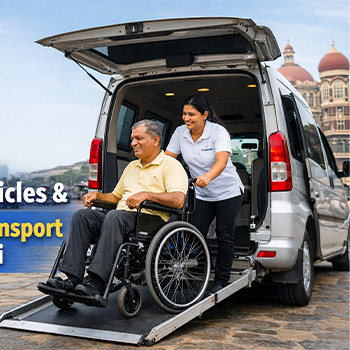
What Is an Adapted Vehicle? How to Book Accessible Transport in Mumbai
-

Top Emergency Apps Every Disabled Person Should Have
-

How to Choose the Right Caretaker Agency in Mumbai
-

Detailed Guide On Best Elder Care Services in Mumbai
-

What do companion caregivers do?
-

The Essential Guide to Finding the Best Patient Care Taker in Mumbai
-
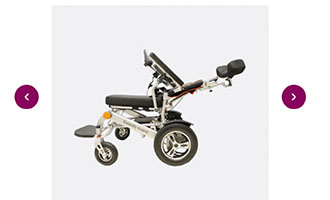
The Pros and Cons of Buying an Electric Wheelchair Online
-
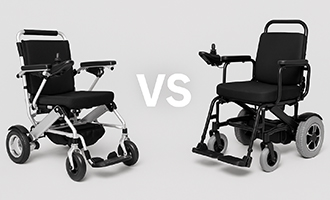
Folding vs Non-Folding Electric Wheelchairs: Which One Should You Buy
-

How Assistive Technology is Transforming Mobility Independence
-

Insurance is key to inclusion
-

A Guide to Choosing the Right Handicapped Equipment for Your Needs
-

How to Choose the Right Health Service Provider for Your Needs
-

Choose your wheelchair well
-
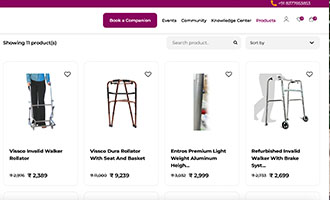
A Comprehensive Guide to Buying Mobility Products for Seniors in India
-

Apps that keep you healthy
-

How to keep going with limited mobility
-

Apps that simplify life
-

Dont stop moving!
-

Tips to Find the Best Healthcare Provider Partners in Mumbai
-

Adapt your vehicle
-

The Ultimate Guide to Wheelchair Accessories: Boost Your Independence Today
-

Senior care top tips
-

Advancements in Treatment and Care for Spina Bifida: What You Need to Know
-

A Guide to Buy Mobility Equipment Online
-

Step into healthy living
-

The benefits of community care
-
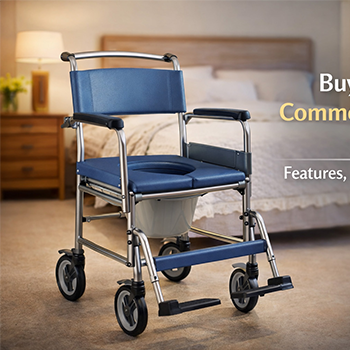
Buy Vissco Commode Wheelchair Online: Features, Benefits and Best Deals
-

Tips for Buying the Best Mobility Equipment for Your Needs
-

What is a Health Care Service Provider?
-
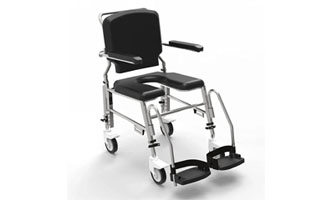
Top 3 Types of Wheelchairs with Built-In Toilet Seats: Enhancing Dignity and Convenience
-

Tips to Select the Best Caretaker Services in Mumbai
-

Celebrating Carers Week : The Unsung Heroes Behind Every Confident Step
-

Enhancing Quality of Life
-

What Makes a Great Support Companion? A Peek Into MobiCrews Training and Ethos
-

Elderly Care Services Offered by Modern Health Providers
-

Apps make caregiving easier
-

Navigating Mumbai with Ease: Your Guide to Reliable Mobility and Elder Care Solutions
-

How to Choose the Right Mobility Chair for Seniors in Mumbai
-

Breaking Barriers: Why Urban Spaces Must Be More Wheelchair-Friendly
-

A Complete Guide to Wheelchair Types and Their Prices in India
-

How to Choose Reliable Elder Care Assistance Providers
-

Who make for ideal caregivers?
-

Smart Tips to Buy a Folding Electric Wheelchair Online
-

Tech that makes life better
-

Elder Care Services in Mumbai: Comparing In-Home Care vs. Assisted Living Option
-

Top 10 Electric Wheelchairs to Buy Online in India: 2025 Edition
-

Smart Home Care Equipment for Seniors That Make Life Easier
-

Caregiver Services for Post-Surgery Recovery in Mumbai
-

Rehab: The road to recovery
-
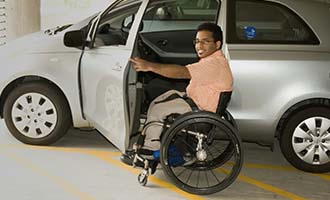
Mobility aids to the rescue
-

The benefits of elder care services
-

Best Online Stores to Buy Disability Equipment in Mumbai
-

Tips for Choosing the Right Health Service Provider
-

Cost of Caretaker Services in Mumbai: What to Expect in 2025?









